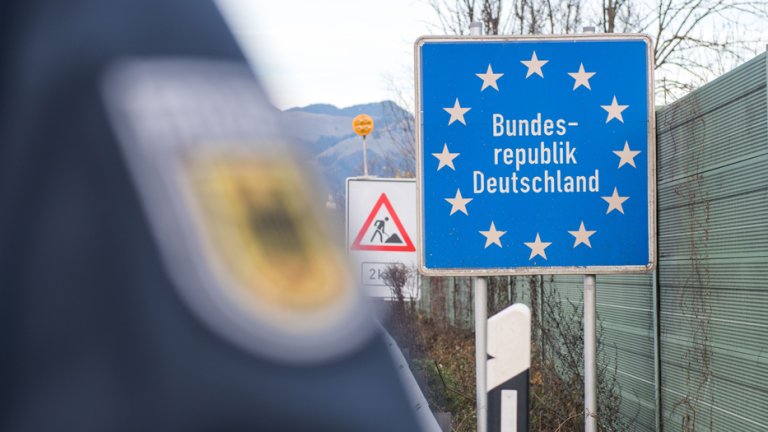Greek Prime Minister Kyriakos Mitsotakis has voiced opposition to Germany’s plans to impose tighter checks on its land borders. He said the move amounted to a unilateral scrapping of Europe's open-border Schengen zone. He also claimed that this would further burden frontline states -- such as Greece -- and was backed up by Austrian Chancellor Karl Nehammer.
German Chancellor Olaf Scholz announced the introduction of increased checks at all of the country's land borders as of September 16. These border checks will be in place for at least six months and are designed to contain irregular immigration into the country.
However, measures like this are normally only taken under extreme circumstances, for example during the onset of the COVID-19 pandemic in 2020, when all borders of EU member states were effectively closed to contain the spreading of the virus.
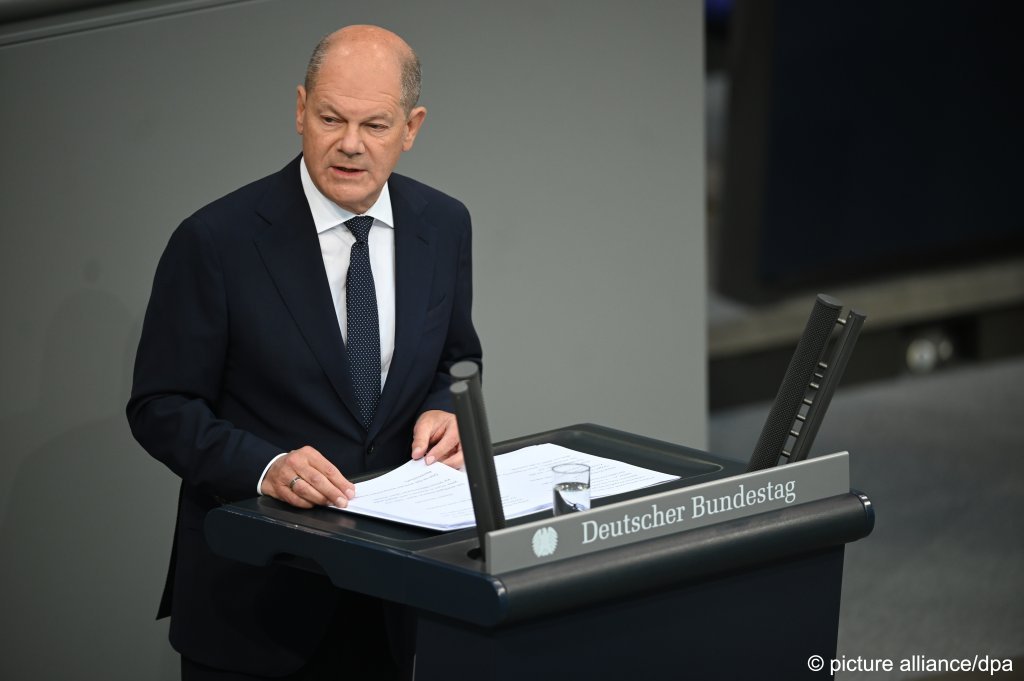
Scholz's unilateral decision to close Germany's borders further off has attracted criticism, in particular from Greek Prime Minister Mitsotakis, who reacted to the development by highlighting the unusual nature of the decision.
Mitsotakis said that by introducing additional border checks, Germany would "be unilaterally scrapping Schengen and dropping the ball to countries which sit on Europe's external borders."
He also said in an interview with a Greek radio station that "Germany had an extremely tolerant and I would say socially generous policy against migrants, which is now triggering a big social backlash."
"The reality is that there are countries in the EU today that are very attractive to migrants," Mitsotakis added while making reference to Germany.
Also read: Germany risks EU 'chain reaction' with new border checks
Alternatives to be considered
Mitsotakis stressed that as the public debate on migration continues, "Greece cannot accept to bear a disproportionate burden because of its geographical location in the EU."
Instead, he underscored the importance of implementing the EU Pact on Migration and Asylum.
Under the provisions of the pact, which was signed last year but is yet to be implemented, Europe's external borders will be further strengthened, among other measures.
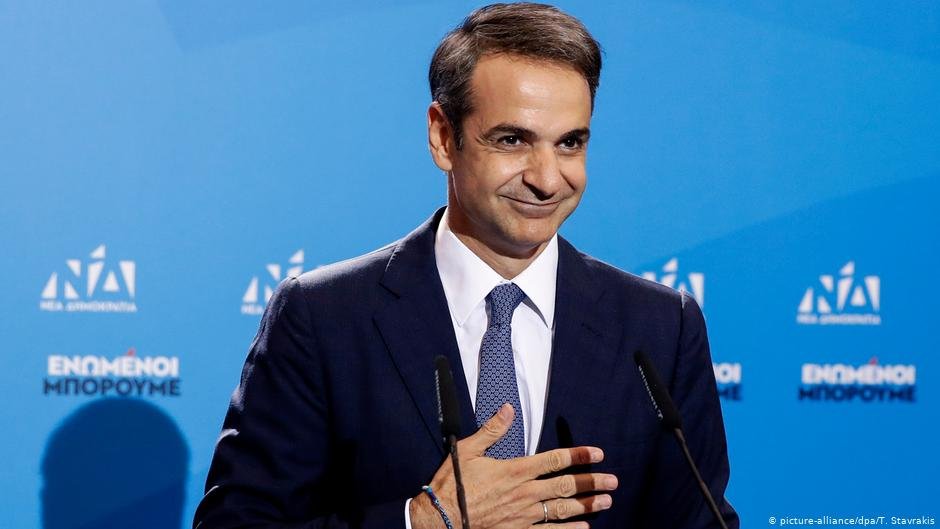
Greece as a frontline EU state
Greece was one of the frontline states of Europe's so-called "refugee crisis" of 2015 and 2016 when more than a million refugees arrived in the EU.
Most of them were fleeing the civil war in Syria as well as human rights abuses in other countries. While the majority of them arrived in Greece by crossing over from neighboring Turkey, most eventually moved on to other western European destinations, mainly Germany.
While the number of irregular arrivals in Greece has fallen significantly since then, many refugees and migrants continue to reach Greek shores, including those departing from Libya and Egypt in North Africa.
Most of these arrivals also plan to move on to Western Europe. However, the EU's Dublin Protocols, which require asylum seekers to be processed in the first EU country they enter, are now being enforced more strictly. As a result, many irregular migrants remain in Greece.
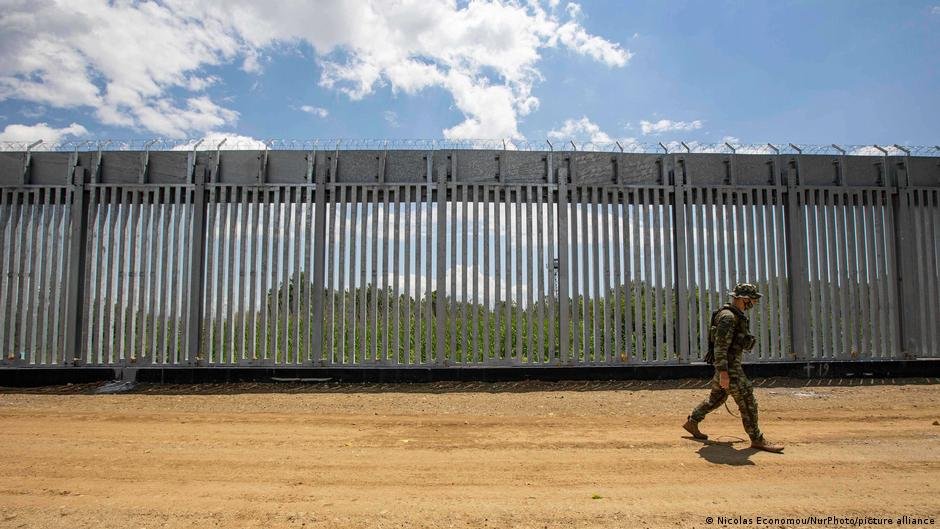
Support for Greece's immigration policies
Mitsotakis' government took over in 2019 and has since been devising ways to tighten the country's migration policy without infringing on its responsibilities as a member of the European Union.
They include the erection of cement and barbed-wire fences along the Greek-Turkish border in the northeast of the country, which are intended to prevent migrants from entering Greece. These border fortifications are due to be fully completed within a year, according to Greek Citizen Protection Minister Michalis Chrisochoidis.
"We are doing our duty to Europe, we're guarding our borders," Chrisochoidis said in an interview with a Greek state broadcaster last week.
These plans to curb migration appear to enjoy popularity among Greeks as last year, Mitsotakis and his government won a second term.
Austrian chancellor chastises Germany
Austria has meanwhile joined Greece in condemning Germany's decision to bolster border checks.
Austrian Chancellor Karl Nehammer agreed with Mitsotakis that the countries located along the external borders of the EU -- such as Greece -- suffered the majority of the burden of irregular migrant arrivals.
He stressed that he would continue to put pressure on Brussels to accelerate shifting the focus onto strengthening the EU's external borders, as highlighted in the EU Pact on Migration and Asylum. Nehammer made those statements in the presence of Mitsotakis during a visit of the latter to the Austrian capital, Vienna, this week.
Chancellor Nehammer also claimed that Germany's decision to strengthen its borders was largely unrelated to any migration trend but was rather in response to domestic issues in Germany.
Also read: Austria tells potential migrants: 'You will fail'
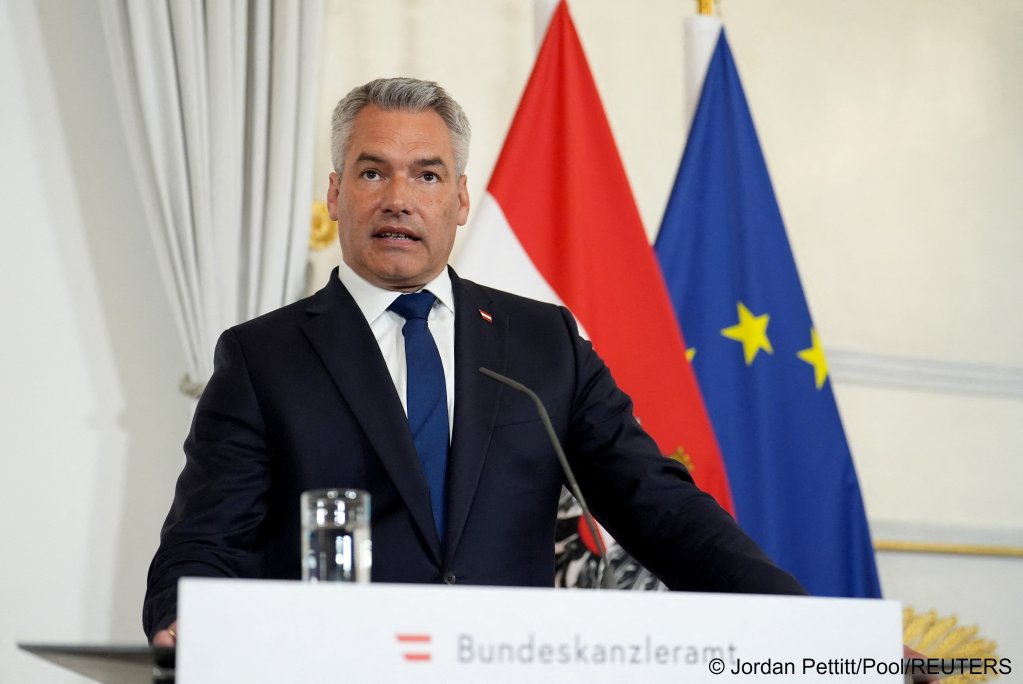
An unpopular decision
While Nehammer didn't specify what exactly he might have meant by that, the public debate on immigration in Germany has shifted significantly in the past month -- first after a knife attack in the western city of Solingen, during which a radicalized immigrant in Germany killed three people, and second after a major rise in support for the far-right Alternative for Germany (AfD) party in two state elections.
After these events, there has been little to no consensus between the government and the opposition on what measures to take in response.
Also read: Germany to tighten asylum laws after Solingen attack – what are the measures?
Nehammer went as far as saying that Austria would stop accepting any asylum seekers sent back from Germany under the provisions of the Dublin Agreement, hoping to increase pressure on the German chancellor to reconsider the plans.
However, while announcing the decision to fortify Germany's border in the Bundestag, Germany's lower house of parliament, Scholz already conceded that the decision would result in negative responses among Germany's neighbors.
"I think we have to get through this. It is necessary for us to put up with this discord for now," Scholz announced.
Also read: Germany ushers in a new bill to fast track deportations and curb knife crimes
with Reuters, dpa
